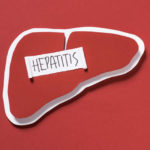Invention Offers Sick Livers a Well-Needed Rest
Artificial liver offers sufferers new hope
KATE FOSTER (kfoster@scotlandonsunday.com)
http://news.scotsman.com
SCOTTISH scientists are developing an artificial liver that could save the lives of hundreds of patients by avoiding the need for an organ transplant.
Researchers have created a ‘bioartificial’ liver using living cells in a machine that can filter blood and take over the functions of the natural organ.
They believe the artificial liver – which works outside the body in a way similar to kidney dialysis – could help patients suffering from acute liver disease such as hepatitis or those who have taken a paracetamol overdose, by giving their own liver the chance to ‘rest’ and heal itself.
They also say it could give a patient dying from chronic liver failure, such as cirrhosis, valuable extra time while they wait for an organ transplant. The team of University of Strathclyde researchers are at the forefront of the technology in the UK.
They have already created devices that replicate the functions of the liver and are now developing ways to allow the living cells used within the device to thrive better.
Deaths from liver disease are on the increase and researchers are trying to find alternatives to transplantation.
Each year in the UK, liver problems kill about 6,700 people but there are only about 650 transplants. Currently, 231,000 people have hepatitis C, which can lead to liver cancer and liver failure.
Over the past 30 years, deaths from chronic liver disease have increased eightfold in men aged between 35 and 44, and sevenfold in women.
Dr John Gaylor, from the Bioengineering Unit at the University of Strathclyde, has led the team responsible for developing the artificial liver.
He said patients could benefit from the treatment within a decade if sufficient funding is put into the research.
“We are looking at creating a device that would buy time for a patient with acute liver failure where the liver has the potential to regenerate.
“If you can buy time the patient can recover. This includes overdose of paracetamol as an attempted suicide and where they go into liver failure within days or weeks. Hepatitis is another big problem. We were also hoping to use the device as a bridge to transplantation where they have chronic liver failure, such as cirrhosis, and would buy time before transplantation. It is to provide some of the lost functions.”
Gaylor and his team used live cells taken from rats’ livers and placed them on plates in a specially constructed machine. They coated the inside of the plates with a special protein mixture that allowed them to stick and continue to thrive.
Animal blood was pumped into the bioartificial liver and it was shown to have been detoxified by the cells in a similar way to how the liver normally functions. The scientists then ‘spiked’ the blood with toxins usually found in the blood of patients suffering from liver disease and found this was successfully removed as well.
Gaylor and his team are now looking at how to make the liver cells work best.
In humans, blood would be taken from the patient directly into the bioartificial liver, allowing their own liver a rest from processing toxins. This could allow the patient’s liver to heal itself. The treatment would take a number of weeks or months before the liver was repaired.
A spokeswoman for the British Liver Trust said of the developments: “This sounds particularly positive as there is currently nothing similar out there for liver patients. The benefits could be enormous.
“We would support anything that would benefit patients. Most people do not know they have liver disease until it is too late and the damage is done.”







